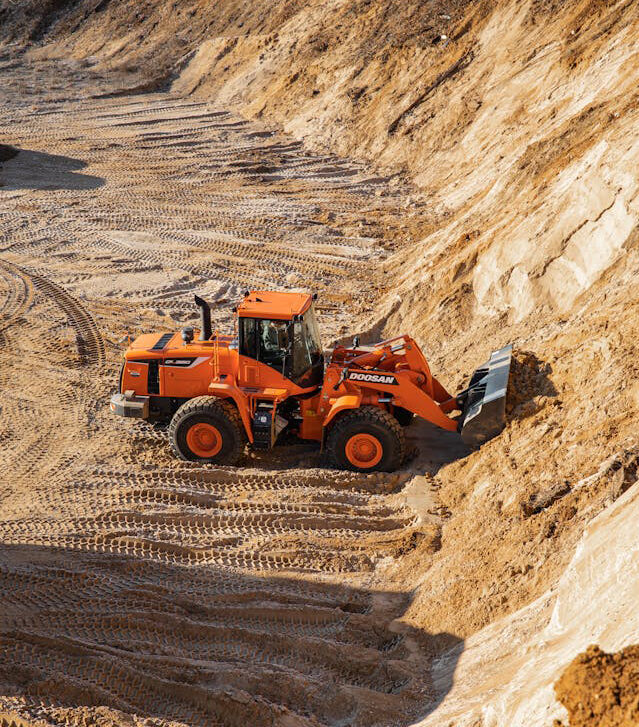Excavation is a critical aspect of construction projects that requires careful planning, efficient execution, and quality control. Inadequate excavation can lead to costly delays, safety hazards, and compromised structural integrity. By understanding key factors that influence excavation performance, project managers and contractors can maximize efficiency and minimize risks. This article explores practical insights for enhancing excavation performance in construction projects.
Understanding the Role of Excavation in Construction
Excavation serves as the foundation for nearly every construction project, from homes to skyscrapers. It involves removing earth and other materials to establish a stable base for structures and utilities. A well-executed excavation ensures that subsequent construction processes proceed seamlessly. When excavation is carried out improperly, it can lead to several risks, including soil erosion, instability, and water pooling, which can compromise the project’s safety and budget.
In construction, heavy equipment is often required for excavation tasks. This machinery not only increases efficiency but also enhances the level of control over the excavation process. Familiarity with various types of excavators and their applications can result in better decision-making when it comes to equipment selection and usage. The right machinery, along with good quality construction equipment parts, not only allows for precise excavation by having new tracks and undercarriage parts but also improves the overall construction project efficiency.
Reasonable Prices for Excavators
When managing an excavation project, equipment costs can significantly impact the overall budget. Many companies face challenges in finding quality excavators at reasonable prices. Whether you are looking for equipment in Houston, Boston, or New York, a little research can lead you to more affordable options. Look for rental agreements or used machinery that fits your needs while saving you money. Understanding market trends can help project managers negotiate better prices. Seasonal fluctuations in demand, as well as the time of year, can affect equipment costs. Investing in quality machinery often pays off in the long run, reducing maintenance costs and improving productivity. Analyzing the total cost of ownership rather than just the initial purchase price can provide insights into long-term savings.
Effective Planning and Scheduling
Proper planning and scheduling have a direct impact on excavation performance. A detailed plan should outline the scope of work, timelines, and resource allocation. Before commencing excavation work, a site assessment is vital to identify potential challenges, such as soil conditions, existing utilities, and environmental concerns. Scheduling excavation tasks during favorable weather conditions can minimize delays and improve safety. In regions prone to heavy rains or extreme temperatures, it’s essential to set realistic timelines that account for potential disruptions. Adequate planning enables teams to allocate equipment and labor efficiently, maximizing productivity on-site.
Safety Protocols and Best Practices
Safety is paramount in excavation projects. Implementing strict safety protocols can prevent accidents and injuries. Workers should be trained in hazard recognition and equipped with personal protective equipment (PPE) relevant to their tasks. Regular safety meetings are also effective in keeping everyone updated on best practices and site-specific hazards. Proper site management includes trench safety, ensuring that excavated areas are adequately marked and barriers are in place. Monitoring ground conditions is vital as well; over-excavation can lead to cave-ins and other dangers. Teams can greatly lower the risk of accidents related to excavation activity by following specified safety protocols.
Utilizing Technology in Excavation
Incorporating advanced technology can greatly enhance excavation performance. Tools such as GPS and machine control systems allow for precise grading and ensure that project specifications are met. Drone technology can provide aerial surveys, offering valuable insights into site conditions before digging. Data analytics can help track progress, predict potential delays, and streamline operations. Effective use of technology enables construction crews to make well-informed decisions based on up-to-date information, improving the results of excavation.
Post-Excavation Considerations
Once excavation is complete, it’s important not to overlook post-excavation activities. Site restoration and soil stabilization are critical for preventing erosion and settling issues in the future. Also, maintaining communication with civil engineers and architects during the transition from excavation to construction can ensure that any special considerations are addressed promptly. Routine inspections should also be conducted to evaluate the integrity of the excavated area. Close collaboration between construction teams can yield valuable feedback, allowing for continuous improvement and adaptation of strategies for subsequent projects. Teams may sustain momentum and stick to project timeframes by concentrating on these factors, which will guarantee a more seamless transition into the following phases of construction.
Training and Continuing Education
Continuous education and training for the workforce can lead to significant improvements in performance. Providing regular training sessions on the latest techniques, safety practices, and technological advancements can empower workers and ensure higher standards across the board. Encouraging certification in specialized areas of excavation can also improve the overall skill level of the team. As standards evolve, staying updated with industry developments will not only enhance performance but also contribute to a safer working environment.
Effective equipment selection, planning, safety, and technology use techniques may significantly enhance excavation performance in construction projects. Understanding the budgeting aspects for equipment while focusing on safety and training further enhances these efforts. Properly executed excavation sets the stage for a successful construction process, ultimately leading to project success.






